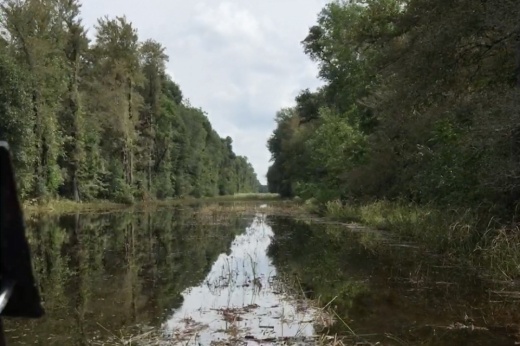Pearland city officials recently joined Brazoria County as well as nearby city and state officials in opposing the development of a holding facility that could potentially house thousands of monkeys that would undergo experimentation for medical research.
The backstory
On Jan. 22, Pearland City Council voted 6-1 to support Brazoria County in opposing the issuance of state and federal permits for biomedical company Charles River Laboratories, which is looking to build a holding facility for up to 43,200 monkeys.
The facility would be built on 538 acres located off CR 2 in southern Brazoria County the company acquired in March 2023, according to agenda documents.
On Nov. 28, the Brazoria County Commissioners Court passed a resolution expressing concerns about the ecological and public health threats the facility could pose and asked city officials within the county to join them in opposing the effort.
To date, officials in Sweeny, West Columbia and Lake Jackson have also opposed the proposal, according to city documents.
“Brazoria County is concerned about the public’s health and safety, the animal welfare, and pathogen introduction with the development of this facility,” the county’s resolution reads.
What else?
Though the county’s resolution opposes building the facility in Brazoria County, if Charles River Laboratories meets federal and state guidelines, the county does not have the authority to halt the development, Brazoria County Commissioner David Linder said.
Linder also said he believes ultimately the power to oppose the development is in the hands of county residents.
“The public’s got more say in this than anyone,” Linder said. “I can tell you, I’m not going to go to a place if nobody wants me there.”
The development has attracted attention from animal welfare activist organizations, including People for the Ethical Treatment of Animals, or PETA, which has sent over 4,000 letters to residents within a 10-mile radius of the proposed facility, PETA Senior Science Advisor Lisa Jones-Engel said.
PETA officials have already spoken with staff at the U.S. Department of Agriculture and plan to speak with officials from the Texas Commission on Environmental Quality about “the very real environmental concerns” the organization believes the facility could pose, Jones-Engel added.
What they’re saying
Council member Adrian Hernandez, the sole Pearland City Council member to vote against the resolution, asked to pull the item from the agenda because he wanted to wait for Charles River Laboratories to conduct a study of the purchased property’s past flooding issues.
“My take on this ... is that with some of the details being up in the air right now, I don’t know that I necessarily want to ... take a position for or against it at this time until they kind of flesh out some of those details,” Hernandez said.
At the City Council meeting, Mayor Kevin Cole said he spoke with county commissioners and was under the impression that Charles River Laboratories had not approached the county before purchasing the land and was not fully aware that the area was prone to flooding.
“I think most of the cities and the county [are] looking to put some opposition on it and a .... little bit more of a spotlight on it,” Cole said at the meeting. “For me, personally, the concern that I have is mosquito control and those types of things. Where are these animals housed? Outside? Inside? Are they going to be open to mosquitos and other things, and then spreading to other parts of the county?”
State and federal representatives for the area have also voiced opposition to the facility’s development.
In November, U.S. Rep. Randy Weber, R-Friendswood, and Texas State Rep. Cody Vasut, R-Angleton, penned letters to Charles River Laboratories expressing concerns about the potential environmental risks and what they felt was a lack of communication on the company’s part to alert county officials and residents to their intent to house monkeys for medical research in the area.
Put in perspective
Mike Goodson, director of nonprofit Friends of the River, which aims to protect the San Bernard River in southern Brazoria County, said the land Charles River Laboratories purchased is “low lying” and prone to flooding during heavy rains and natural disasters, such as Hurricane Harvey in 2017.
Goodson estimated the land was covered by 2-3 feet of water following flooding caused by Hurricane Harvey.
“It’s a very flood-prone area,” Goodson said. “I’m not sure they did their due diligence on elevation and what would happen during big flooding events when they bought this property.”
Goodson also said he was concerned the monkeys could potentially spread diseases, such as tuberculosis. He said that could be devastating for the county’s beef industry, which counted 68,000 heads of cattle in 2023, according to 2023 U.S. Department of Agriculture reports.
Linder said he was not opposed to research in the pursuit of lifesaving medicine but felt the area where the proposed facility would be built was flood-prone, thus posing a potential public health risk to county residents if any waste leaked into the surrounding environment.
Since the end of September, hundreds of Brazoria County residents called him expressing similar concerns, Linder said.
“I know that housing tons and tons of monkeys in a place that floods ... and is very susceptible to ... river flooding, heavy rains—this location is a problem that they chose, and the residents recognize it,” Linder said.
Located off of CR 2 and adjacent to the San Bernard River tributaries, the purchased property is less than 30 miles from the San Bernard National Wildlife Refuge.
“That's why it’s undeveloped, and it probably will remain undeveloped for eons and eons,” Linder said.
Stay tuned
Charles River representatives, which has had a presence in Texas for over 40 years, met with county officials in December and were alerted to the property’s potential flooding issues, said Amy Cianciaruso, Charles River Laboratories chief communications officer, in an email.
“With respect to this information and these issues, we have asked our design and engineering firms to further assess the suitability of this site,” Cianciaruso said. “This assessment is likely to take significant time, perhaps months, and in the interim, we will suspend any future permitting requests, actions or activities at the site.”





